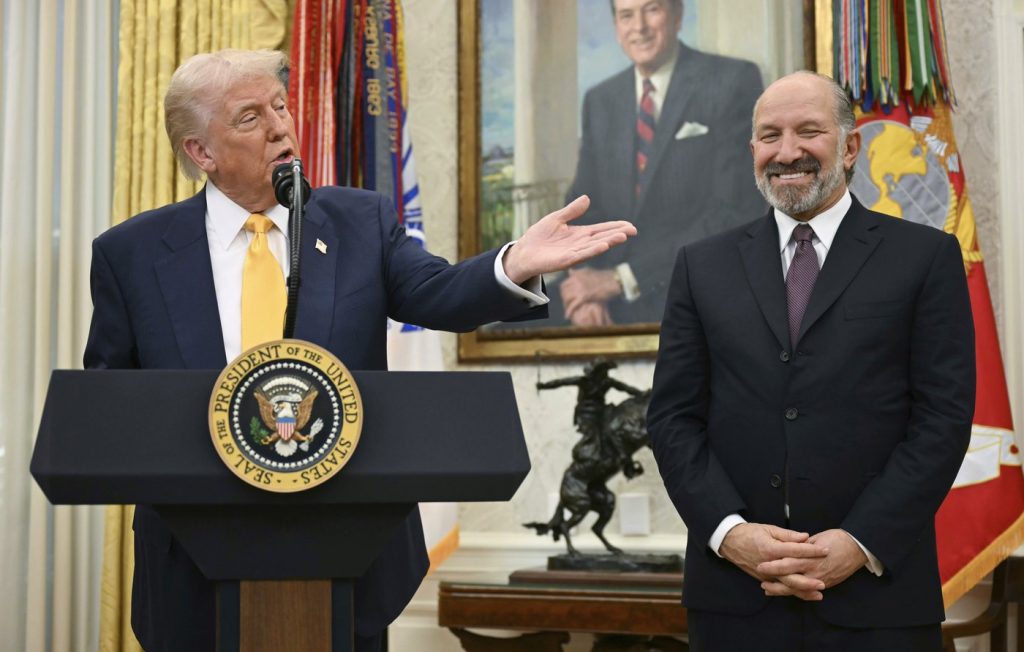WASHINGTON In a significant development, U.S. President Donald Trump’s economywide tariffs on Canada and Mexico have recently gone into effect, prompting lawmakers and senior advisers in Washington to urgently respond. This move has raised concerns among various political figures and industry leaders regarding the potential economic ramifications and its correlation with ongoing issues related to drug trafficking.
To address the situation, key members of Trump’s administration took to television news programs to emphasize a narrative linking the tariffs to the flow of fentanyl, a potent synthetic opioid, into the United States. Commerce Secretary Howard Lutnick publicly stated, “It’s a drug war, not a trade war,” underscoring the administration’s position that the tariffs are a necessary measure in combating drug-related issues rather than merely a trade dispute.
In the wake of these announcements, President Trump utilized social media platforms to further clarify his stance, asserting that there would be no tariffs imposed on companies that relocate their operations to the United States. Additionally, he reiterated a controversial claim regarding Canada’s banking policies, alleging that Canada does not permit American banks to operate freely within its borders, a statement that has been questioned and deemed inaccurate by various financial experts.
The political repercussions of the tariffs have elicited strong reactions from Democratic leaders. Senate Minority Leader Chuck Schumer expressed grave concerns about the impact of the tariffs on American consumers. He argued that these tariffs will ultimately lead to increased prices for everyday goods and services for American families. Schumer acknowledged that while tariffs can be effective tools when directed strategically against certain adversaries, targeting America’s closest allies—Canada and Mexico—does not make practical sense.
As discussions continue, the administration appears intent on framing the tariffs as part of a broader strategy to combat drug trafficking, particularly the influx of fentanyl, which has been a major contributor to the opioid crisis in the United States. The political landscape, however, is fraught with potential backlash as economists, lawmakers, and the public weigh in on the implications of these policies on trade relations and economic stability.
Overall, the introduction of these tariffs marks a critical moment in U.S.-Canada-Mexico relations, with significant scrutiny from various stakeholders on how this decision will influence both domestic economics and international diplomacy moving forward.










